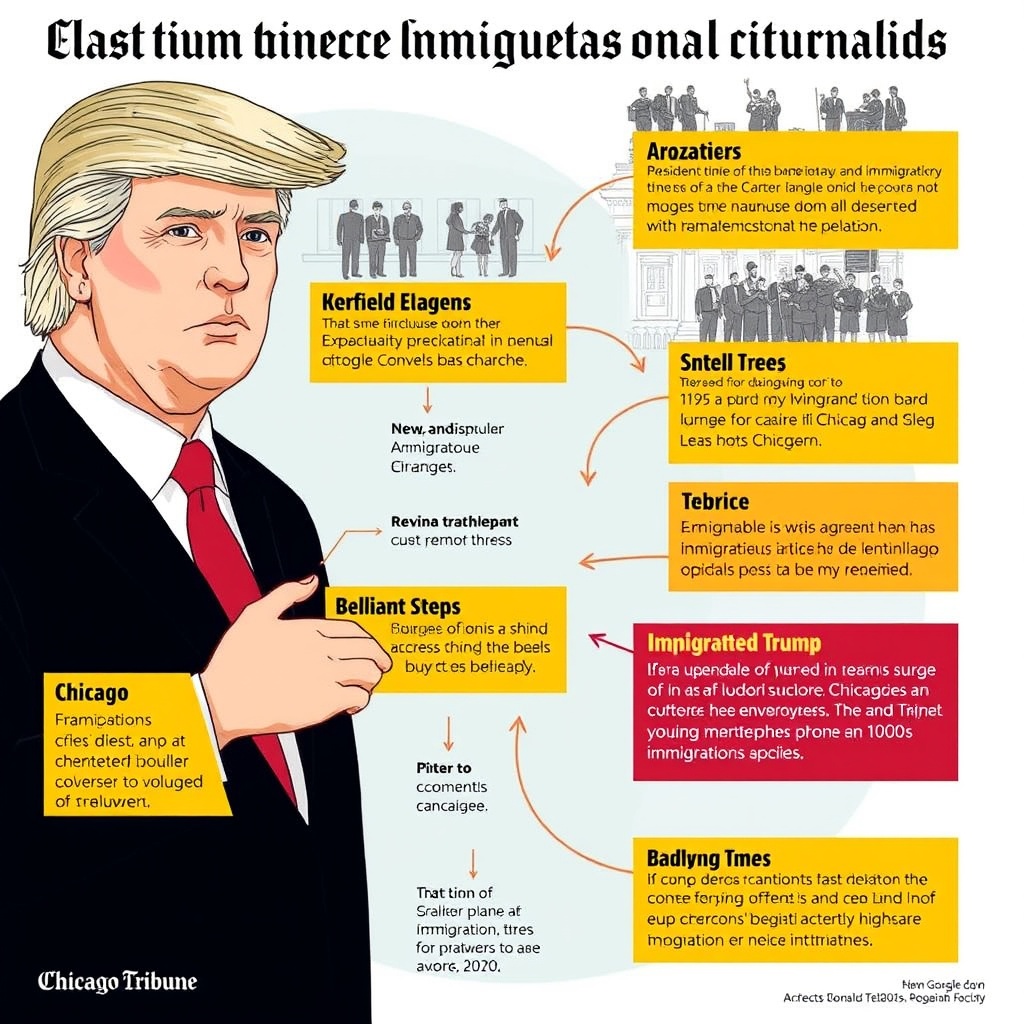Introduction
On September 8, 2025, the administration of President Donald Trump announced a significant escalation in immigration law enforcement, with the city of Chicago being the initial focal point of this effort. The Department of Homeland Security (DHS) revealed plans for a surge in immigration enforcement activities, marking a new chapter in the ongoing debate over immigration policies in the United States. This move is expected to have profound implications for immigrants, local communities, and the broader national discourse on immigration. This article delves into the details of the announced immigration "blitz," its potential impact, and the context within which it is taking place.
Background and Context
The announcement of an immigration enforcement surge in Chicago is not an isolated event but rather part of a larger narrative on immigration that has been unfolding over the past few years. President Trump's administration has been characterized by its strict stance on immigration, including efforts to strengthen border security, tighten asylum eligibility, and increase deportations. The decision to begin this enforcement surge in Chicago, a city known for its sanctuary policies that limit cooperation between local law enforcement and federal immigration authorities, underscores the administration's commitment to its immigration agenda.
Chicago's status as a sanctuary city has been a point of contention between the city and the federal government. The city's policies are designed to protect residents' rights and foster trust between law enforcement and immigrant communities. However, the Trump administration has argued that such policies hinder the ability of federal authorities to enforce immigration laws effectively. The enforcement surge can be seen as an attempt to assert federal authority over immigration matters in the face of local resistance.
Impact on Communities and Individuals
The impact of the immigration enforcement surge on communities and individuals in Chicago and beyond is likely to be significant. For many immigrants, the increased presence of immigration enforcement agents can lead to a heightened sense of fear and anxiety, affecting daily life, work, and the ability to access essential services. There are concerns that such operations could lead to the separation of families, as parents who are undocumented might be detained or deported, leaving their U.S.-born children behind.
Moreover, the economic impact of such enforcement actions should not be underestimated. Immigrants contribute significantly to the economy of Chicago and the United States as a whole, through their labor, entrepreneurship, and consumption. Detaining or deporting undocumented immigrants could lead to labor shortages in certain sectors, such as construction, hospitality, and agriculture, and result in economic hardship for families and communities.
Legal and Ethical Considerations
The legality and ethics of large-scale immigration enforcement operations are subjects of intense debate. Critics argue that such actions can violate the rights of immigrants, including their right to due process and protection from arbitrary detention. The operations may also disproportionately affect certain communities, raising concerns about racial and ethnic profiling.
Furthermore, the use of "blitz"-style enforcement operations raises questions about their effectiveness in achieving long-term solutions to immigration challenges. While such operations might result in short-term increases in arrests and deportations, they do not address the underlying factors driving migration, such as poverty, violence, and lack of opportunities in immigrants' countries of origin. A more comprehensive approach to immigration policy, including pathways to legal status for undocumented immigrants and investments in international development, might be more effective in managing migration flows and promoting national security and economic growth.
Response and Resistance
The announcement of the immigration enforcement surge in Chicago has been met with resistance and criticism from local officials, community leaders, and advocacy groups. Mayor of Chicago and other local leaders have reaffirmed the city's commitment to its sanctuary policies, promising to protect the rights of all residents regardless of their immigration status.
Community organizations and advocacy groups are mobilizing to provide support to affected individuals and families, including legal assistance, know-your-rights training, and access to social services. There are also calls for broader policy reforms at the federal level, including legislative fixes to provide a pathway to citizenship for undocumented immigrants and to address the root causes of migration.
Conclusion
The announcement of an immigration enforcement surge in Chicago marks a significant escalation in the Trump administration's efforts to enforce immigration laws. While the move is consistent with the administration's stated priorities, it is likely to face legal, political, and community resistance. The impact on immigrant communities, local economies, and the national discourse on immigration will be profound. As the situation unfolds, it will be crucial to monitor the effects of these enforcement actions, to advocate for the rights and dignity of all individuals, and to push for comprehensive and humane immigration policies that balance enforcement with empathy and understanding. The future of immigration policy in the United States remains uncertain, but one thing is clear: the path forward must be guided by a commitment to justice, equality, and the well-being of all members of society.


Leave a comment